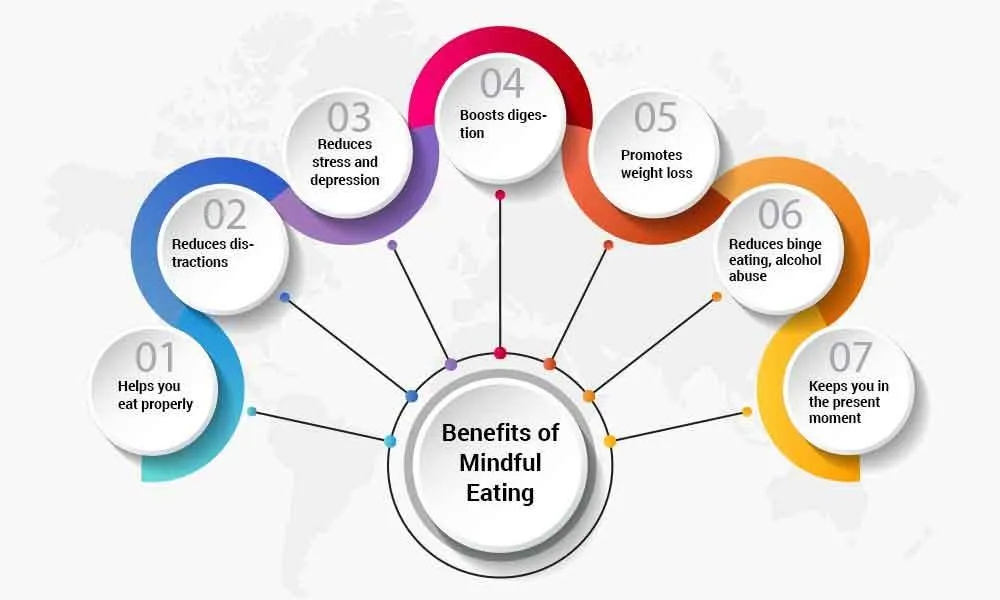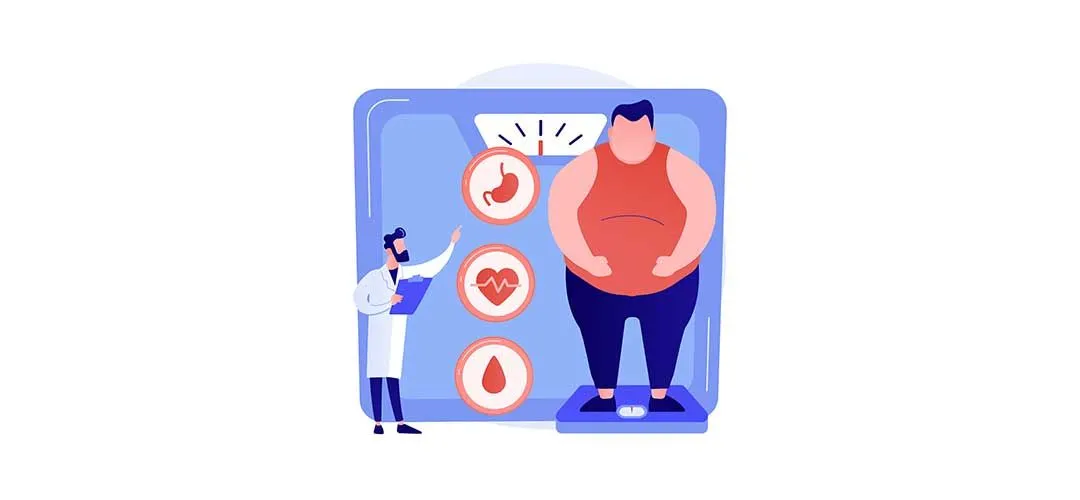The practice of Mindful Eating relates to how you “eat” your food. While you might scoff at the idea, the fact is that most of us do not eat our meals properly. We are more than occupied with watching television, checking our mobile phones, talking to others, or we are just stressed.
Mindful Eating refers to the process of becoming aware of what you are eating and psychologically believing that all its nutrients are being soaked into your body. This applies equally to all types of foods that you could be eating for breakfast, lunch, or dinner.
The studies from the University of Surrey has highlighted that having a meal on the move could make you prone to overeating throughout the day. Conducted on 60 teenage girls, this scientific study was based on filling out a questionnaire about how hungry they were and how urgently they wanted to consume food. They were also supposed to fill in their usual normal routine in the same questionnaire.
It was all about finding missing patterns of Mindful Eating. Most of the subjects were habitual fast eaters who did not give enough consideration to eating slowly and properly. Their metabolism rates and weight management processes were less than satisfactory as compared to those who had their food mindfully and peacefully.
Did you know? An Ancient East Asian eating practice describes the ideal way of eating as chewing your food 32 times before swallowing it.
Chewing food for a long time takes the load off our digestive process and helps our intestines only do their work, instead of first breaking it into smaller chunks. It is for this reason that in ancient times, physicians advised people to drink their foods and eat their fluids by chewing them 32 times in their mouths. This is what’s best implied by chewing one’s food for a long time.
Here are the benefits of eating mindfully:
1. Helps you eat properly
2. Reduces distractions
3. Reduces stress and depression
4. Boosts digestion
5. Promotes weight loss
6. Reduces binge eating, alcohol abuse
7. Keeps you in the present moment
Mindful Eating practices also maximize the benefits of healthy eating- a crucial factor in maintaining better health and fitness standards. Once you start seeing its benefits, you would not hesitate to make this way of eating food your new way of life.
Suggested article: Weight loss: Nutrition labels, Fenugreek Seeds, and YOU!
Here are some common distractions and disruptions that affect mindful eating:
Watching TV
Chatting or talking
Walking
Being stressed
Being workaholic
Checking mobile phone
Not interested in the food
Late-night craving for food
Overeating or binge eating
The important thing to remember is that one should enjoy the experience and try to be in the present moment. The more you can discipline yourself into it, the better it would be for you.
Here’s how to do it:
1. Chew properly
2. Eat quietly
3. Stay focused
4. Imagine yourself chewing properly
5. Stay away from distractions
6. Stop when you are full
7. Differentiate between hunger and boredom
8. Relish having your meal
9. Stay away from anxiety and anger
10. Stay in the moment of eating
11. Appreciate your food
12. Be grateful
13. Accept your current body shape
14. Be satisfied with your life
15. Be happy and satisfied
16. Stay away from binge or alcohol
The above pointers also double up as some of the best mindful eating practices that you can follow at home.
Did you know? Walking contributes to weight loss and proves helpful in making visible changes. All this holds until the time you eat while walking or sometimes, standing. Here’s a free resource explaining Why A Brisk Walk Is A Really Great Workout?
An episode of Binge Eating Disorder is an emotional reaction to food. As an antithesis to mindful eating, it is characterized by an emotional reaction towards food and an undeniable temptation to eat one’s favorite food. This is also called gluttony.
Some people may gorge on cakes and pastries even if they are diabetic while others may devour French fries and pizzas even if they have issues with BP. Some may eat chilly foods even if they are down with thyroid issues while some may simply drink cola drinks even when their kidneys are in bad shape.
This disorder is not genetic but mental or psychological. It is affected by the following traits:
1. Age
2. Current ailments (BP, Diabetes)
3. Self-esteem
4. Shame and guilt
5. Trauma
6. Stress and depression
7. Obesity (or poor self-image)
8. Weaker willpower
It is quite easy to decipher if someone is affected with overeating or binge eating disorder. As you check their symptoms against the list above, you can figure out the results. The bigger challenge is to stop the issue of overeating without offending the other person.
Since such people often uncontrollably eat large amounts of foods at seemingly odd times, it makes sense to know that the coping methods should address the issues of shame and guilt that come with it. Here’s how a wellness expert would go about it:
1. Counseling (Psychotherapy)
i. Cognitive Behavioral Therapy (CBT)
ii. Dialectical Behavior Therapy
iii. Humanistic Therapy
iv. Interpersonal Psychotherapy (IPT)
v. Interpersonal Psychotherapy
vi. Cognitive Analytical Therapy (CAT)
vii. Family and Couple therapy
2. Medications
3. Lifestyle Changes
4. Home Remedies
5. Following to fitness-based diet and workout routine
The best way to introduce the healthy habits of Mindful Eating and to stay away from episodes of overeating is to get treated for mental ailments. The trouble is that consulting a psychotherapist may sound shocking or even derogatory to some people, especially if they are habitual offenders.
The key is to know that you can advise someone to take these psychotherapy or healthcare sessions through live online sessions. It is possible to avail of these sessions on-demand without making any reservations on one’s smartphone from some of the world’s leading experts.
They may advise you about making substantial changes to your dietary and thinking habits so you could cut down on overeating and embrace the positives of mindful eating. It would take you some time to get going with them but they would always be worth it!


